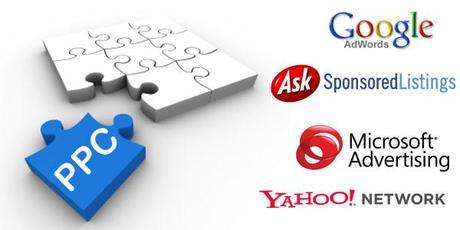Guest Post by Anthony Fitches

Starting a business can be one of the most exciting but equally scary times of your life. Finally starting up on your own can be the realisation of a lifelong dream. In truth, your dream can quickly become a nightmare if you are spending your time and money on areas which will help to grow your business.
PPC Advertising for small business (Pay Per Click) is a double edged sword with very fine lines between success and failure. As a small business however, this can be your main selling tool during your initial 6 month of trading.
Let’s dispel a widespread myth – ‘It costs a fortune’
It’s true that if you let yourself get carried away, you can spend a scary amount of money on PPC but don’t let that put you off. Limiting your budget and targeting realistic searches will help you to avoid this situation.
The benefit to small business
In most cases, the early days for a start-up business owner can be lonely with very little inbound enquires. You will spend most of your time networking, cold calling and generally chasing leads. The unrivalled benefit of PPC advertising is that you are getting in front of an audience who are already searching for your service. Rather than spending 95% of your time, energy & budget pestering others who are not interested, with PPC you are starting the sales cycle with an already warm lead. This is arguably the hardest part, although closing the deal is now down to how you present yourself online.
The risk for small business
As explained earlier, PPC advertising comes with a risk. The risk is spending a substantial amount of money for little or no return on your investment.
Ensuring your website is fully geared up to receive paid for traffic is a major factor in avoiding this scenario. You do not want to be spending $$ per visitor if you are going to send them to a page which is not directly linked to what they were originally searching for.
The reward
Big risk naturally brings the possibility of big rewards. Having a streamlined, targeted campaign can bring you a great return on investment. So much so that lots of companies report PPC is their primary source of new business. Let’s look at an example of how PPC can be highly cost effective. In this example we will use an ecommerce website.
A few stats we need to work out the return on investment:
Website conversion rate: 8%
Average order value: $60.00
Daily PPC budget: $20.00
Average cost per click: $1.20
Let’s do the math to show how cost effective this campaign could potentially be.
First we work out the click per day we can expect:
Daily Budget / Average cost per click
$20.00 / $1.20
= 16 clicks per day
Now let’s work out how many sales we can expect from these clicks:
Daily clicks / 100 * website conversion rate
16 / 100 * 10
= 1.28 sales
Now we know that from 16 clicks, we can expect 1.28 sales.
Now we work out the revenue we can expect from this:
Sales * Average order value
1.28 * $60.00
= $76.80 per every 16 clicks
To work out the return on investment (ROI)
ROI = (Total Income – Initial Investment) / by Initial Investment / multiplied by 100
(($76.80 – $20) / 10) x 100
= Return on invest of 568%
This is obviously an example, and you would be very fortunate for your first campaign to turn out like this, but it is possible.
In this case, the ROI would be fantastic, and you would increase your daily budget to increase your total income from PPC.
Implementing PPC for your business
From looking at the figures above it would very easy to head straight over to Google AdWords and start a campaign. It goes without saying that if it was as easy as that, everyone would be doing it. Creating a PPC campaign which brings a good ROI and can be left running takes a lot of time and effort then most care to believe.
A few things to remember:
It’s far better to be a big fish in a small pond – If you are offering a car washing service, you would be crazy to target national terms and compete against national companies. You won’t win! Rather, target specific geographical areas appropriate to you and target them well. Make yourself the biggest player this way, as you will find the return is much better than trying to immediately beat the big players.
Relevance & Action – Make sure you are sending visitors to pages on your website which are relevant to the ad they clicked. The homepage is not normally enough! Send them to a specific landing page with strong call to actions, whether it being filling in a form or giving you a call. This is the biggest mistake most make.
Testing is everything – Don’t expect to set away 3 adverts at 9am and watch the phone light up all day. Why not test different ads at different times of the day. Learn from your ads. You may find that you only get calls between 12pm – 6pm. Cut out the ads which don’t fall into this group and save budget for the peak times.
PPC doesn’t always work – I have worked on many campaigns where the product simply does not suit PPC. In most cases this is because the cost per click far outweighs the selling price of the product. In this case just accept it and use your budget in other areas.
I hope this helps you to develop a well-rounded PPC campaign which doesn’t end up costing you the earth. If you have any questions please comment below and I will try to answer them as best as I can.

Anthony Fitches is a Director at SEOptics, a search engine optimisation consultancy in London & Newcastle upon Tyne, UK. SEOptics work with a range of businesses on campaigns of all sizes, primarily increasing online presence. Follow Anthony on Twitter.


